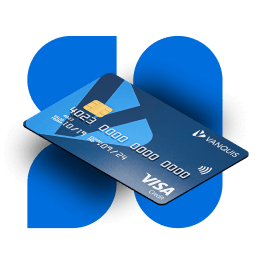Checking your own credit score is a great first step to making sure your finances are in order. It can show you if there is something incorrect on your credit report and allows you to check your details are correct.
Keeping on top of your credit score means you can make sure what’s shown is a true picture of your credit agreements and personal situation. Doing this means you’re in a much better position when it comes to lenders deciding whether to lend to you.
What is in your credit score?
First of all, it’s important to know the differences between your credit score and credit report:
Credit Score
Your credit score is a number that lenders will review when making a decision on an application for credit. Your credit score represents your ability to manage credit and is made up of a number of factors such as your credit history including history of repayments, your total debt, open accounts as well as other information.
Credit Report
Your credit report shows in detail all the parts which make up your score, including bank accounts, credit and financial agreements and any personal details which would have an impact on your ability to obtain credit such as address details and whether you are listed on the electoral roll.
Credit Reference Agencies (CRAs) will have their own score for you and you can also use a CRA to access your full credit report to check specific details.
Your credit score can look different depending on the agency you use and each CRA uses a slightly different score. Typically it will be made up of the following:
- Your credit agreements
You’ll find details of any current credit as well as any credit cards, loans or other credit agreements you’ve had in the past (usually called ‘settled’ agreements). You’ll also see bank account details and current accounts you’ve closed. - Electoral roll
It’s important that you are registered to vote as lenders see this as a positive factor when deciding whether to lend to you. - Credit searches
Any applications for credit that you’ve made will show up here. Usually this will only include a ‘hard check’ and not a ‘soft credit search’ like checking your eligibility for a credit card. - Financial relationships
Your credit score will also be affected by anyone you are connected to through a financial or credit agreement. This could be a joint mortgage with a partner for example. - Debt information
Court orders like County Court Judgements or bankruptcies will affect your credit score significantly so if you have these, they will be make up your score and show on your credit report.
How to access your credit report
You can obtain a copy of your credit report for free from the three main Credit Reference Agencies (CRAs):
- Equifax
- Experian
- TransUnion (you can access TransUnion through their Intuit Credit Karma website)
You might find that you get different information on your credit from all three CRAs so if you haven’t checked your credit report in a while, you can always get a free copy from each.
With Experian, you can sign up for a free 30-day trial of their CreditExpert service, which provides you with free access to your credit report and the score they hold for you. After this period, there is a cost to pay if you want to receive this information on an ongoing basis
Equifax offer a similar service which allows 30-day access of their credit monitoring service. Again, there is a monthly fee if you want to keep access to this service after your trial is over. Experian also offer free access to your credit report through their ClearScore website which also allows you to apply for financial products.
TransUnion offer a free credit report service through Intuit Credit Karma which is free to access and get your credit score.
You can access your credit report as often as you like and it won’t affect your credit score.
When to check your credit report
There isn’t a specific point in time when you should check your credit report but it’s a good idea to check for time to time. If you haven’t checked your report in a while, you can get a free copy and check for mistakes.
If you are planning on applying for a credit card, loan or mortgage then this is a good time to check your report. Any incorrect information about you or your payments can affect whether or not lenders will lend to you.
